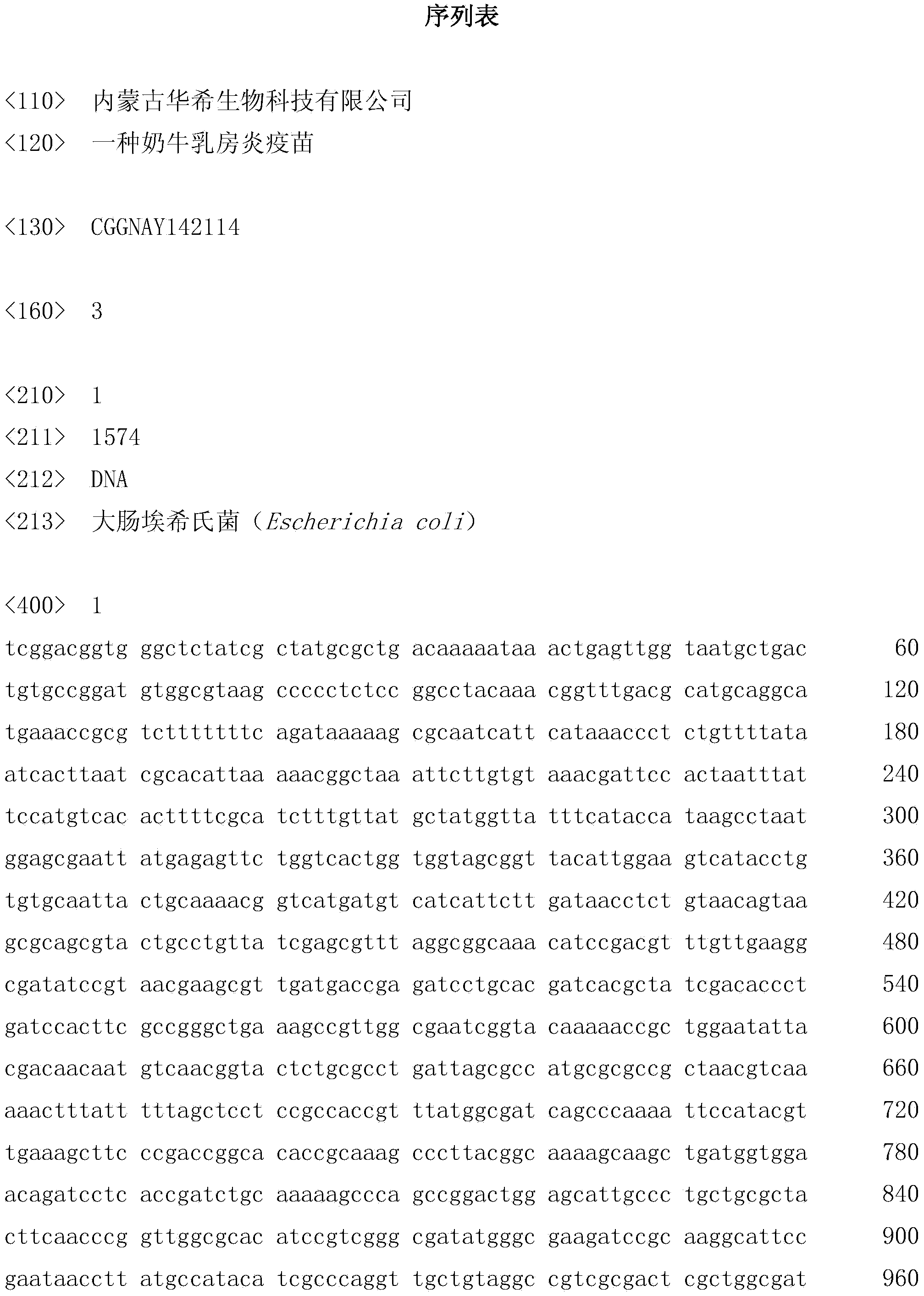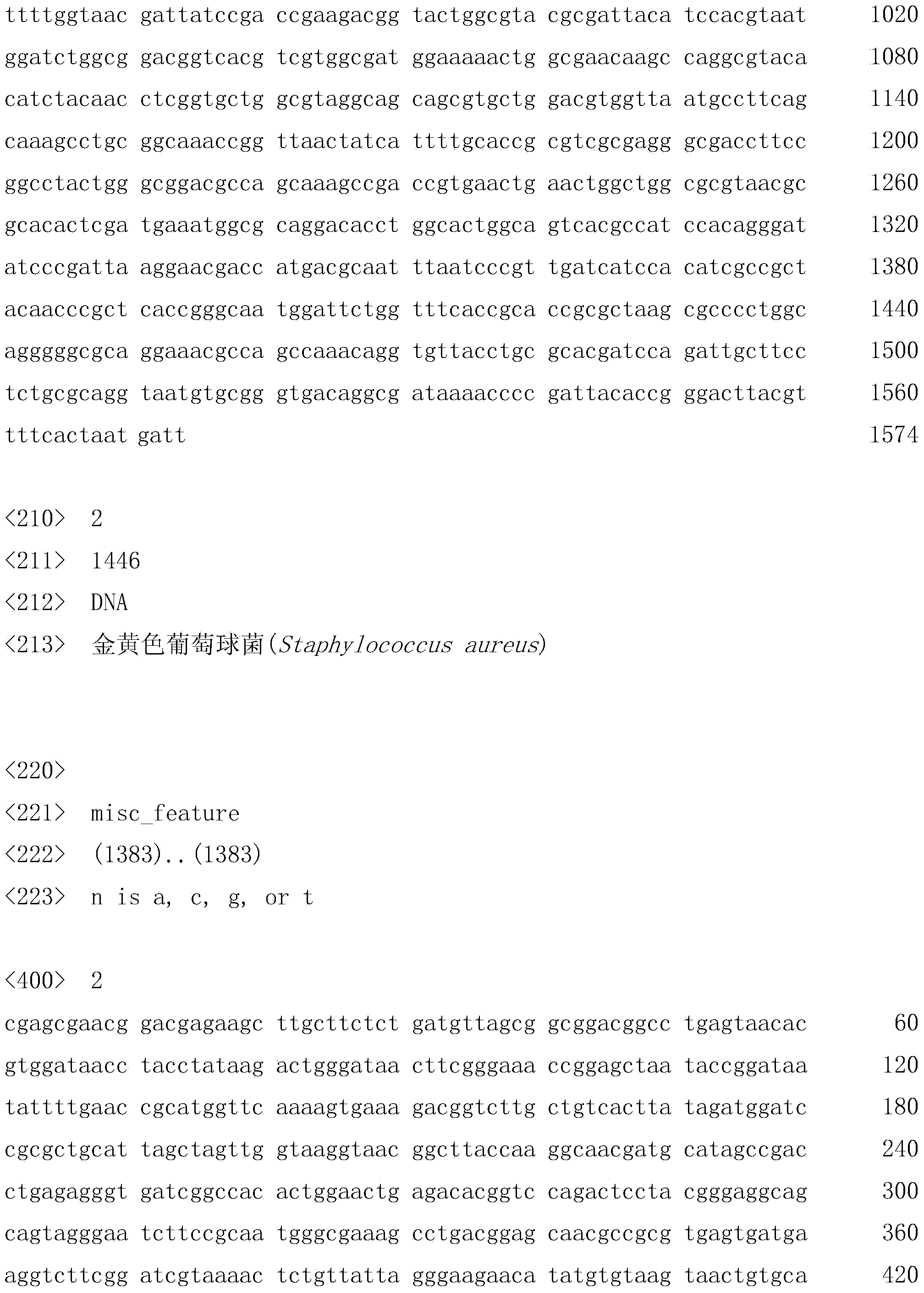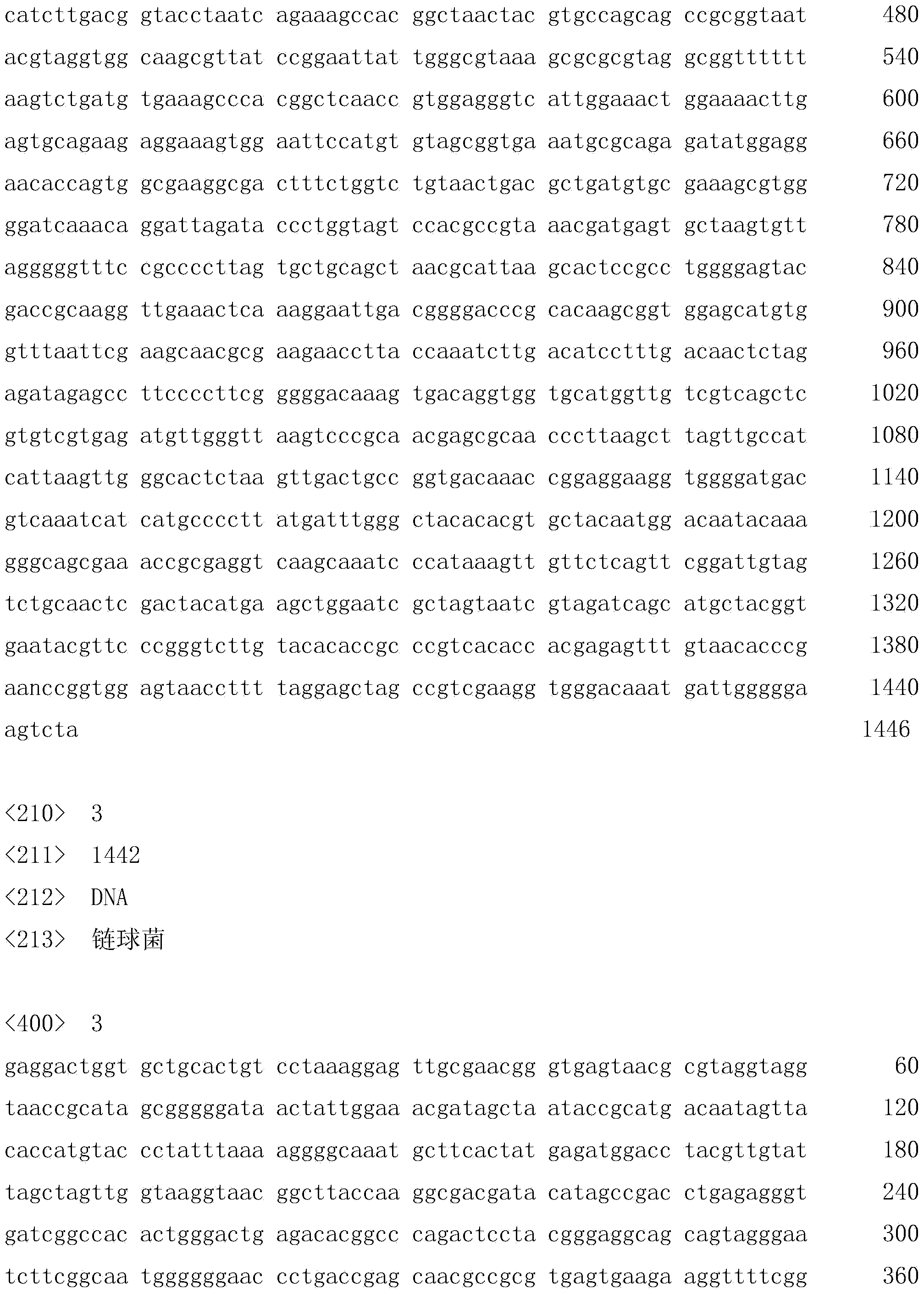Milk cattle mastitis vaccine
A dairy cow mastitis and vaccine technology, applied in biochemical equipment and methods, bacterial antigen components, microorganisms, etc., can solve the problems of high attack rate of dairy cows, high actual loss, and spread of pathogenic microorganisms
- Summary
- Abstract
- Description
- Claims
- Application Information
AI Technical Summary
Problems solved by technology
Method used
Image
Examples
Embodiment 1
[0041] Embodiment 1, the acquisition of each bacterial strain
[0042] 1. Acquisition and preservation of E. coli recombinant bacteria
[0043] (1) Screen wild bacteria
[0044] 30,000 cow milk samples were collected from 90 medium and large dairy farms in 30 provinces and cities including Inner Mongolia, Chongqing, Guangzhou, Heilongjiang, Lanzhou, Hebei, and Shandong. Milk sample collection method of dairy cows: select cows with clinical symptoms of mastitis (or suspected subclinical mastitis), first scrub the udders with warm water, then scrub the udders with 0.2% bromogeramine, and finally wipe the nipples with 70% alcohol. At the same time, use 70% alcohol to wipe and disinfect the fingers. Squeeze out the first 2-3 handfuls of milk from each milk chamber to eliminate contaminated bacteria. Take at least 5mL of milk samples from each cow in a sterile milk sample cup.
[0045]Isolation and purification of Escherichia coli strains from milk samples. Colony morphological ...
Embodiment 2
[0088] Embodiment 2, the characteristic of bacterial strain
[0089] 1. Characteristics of strain EBMO9
[0090] Thaw the cryopreservation tube obtained in Step 1 (2) and 4 of Example 1 at room temperature, and perform the following steps on the P3 generation strain EBMO9:
[0091] (1) Immunogenicity of strain EBMO9
[0092] Rabbits were immunized with the P3 generation strain EBMO9 (single immunization, each by subcutaneous injection of 5×10 7 CFU / ml, 1 ml for each injection), 21 days later, blood was collected from the heart, and the serum was separated. The IgG antibody titer of the serum was detected by ELISA (serum dilution was obtained by gradient dilution with PBST buffer; the P3 generation strain EBMO9 was used as the coating source, and the coating concentration was 1×10 9 Bacteria / ml; goat anti-rabbit IgG enzyme-labeled secondary antibody; set negative control, that is, replace serum diluent with PBST buffer; detect the absorbance value at 450nm; the absorbance va...
Embodiment 3
[0141] Embodiment 3, the preparation of vaccine
[0142] 1. Preparation of capsular polysaccharide
[0143] (1) Thaw the cryopreservation tube obtained in step 2 (2) and 3 of Example 1 at room temperature, and carry out the following steps for the P3 generation strain:
[0144] 1. Take 3-5 typical colonies of strain SACP5-9, inoculate them in BHI medium, and cultivate them with shaking at 37°C and 150rpm for 18h.
[0145] 2. Take 2 parts by volume of the bacterial liquid obtained in step 1, inoculate 100 parts by volume of BHI medium, and ferment in a fermenter at 37°C (at the initial stage of fermentation, the bacterial concentration of strain SACP5-9 is 2×10 8 per ml, the temperature of the fermenter is 37°C, the initial rotation speed of the fermenter is 198r / min, the tank pressure is maintained at 0.05MPa, and the pH of the fermentation system is adjusted to 7.0-7.2 with 8% NaOH aqueous solution or 5% hydrochloric acid aqueous solution. Rotate the speed of the fermenter ...
PUM
| Property | Measurement | Unit |
|---|---|---|
| concentration | aaaaa | aaaaa |
Abstract
Description
Claims
Application Information
 Login to View More
Login to View More - R&D
- Intellectual Property
- Life Sciences
- Materials
- Tech Scout
- Unparalleled Data Quality
- Higher Quality Content
- 60% Fewer Hallucinations
Browse by: Latest US Patents, China's latest patents, Technical Efficacy Thesaurus, Application Domain, Technology Topic, Popular Technical Reports.
© 2025 PatSnap. All rights reserved.Legal|Privacy policy|Modern Slavery Act Transparency Statement|Sitemap|About US| Contact US: help@patsnap.com



